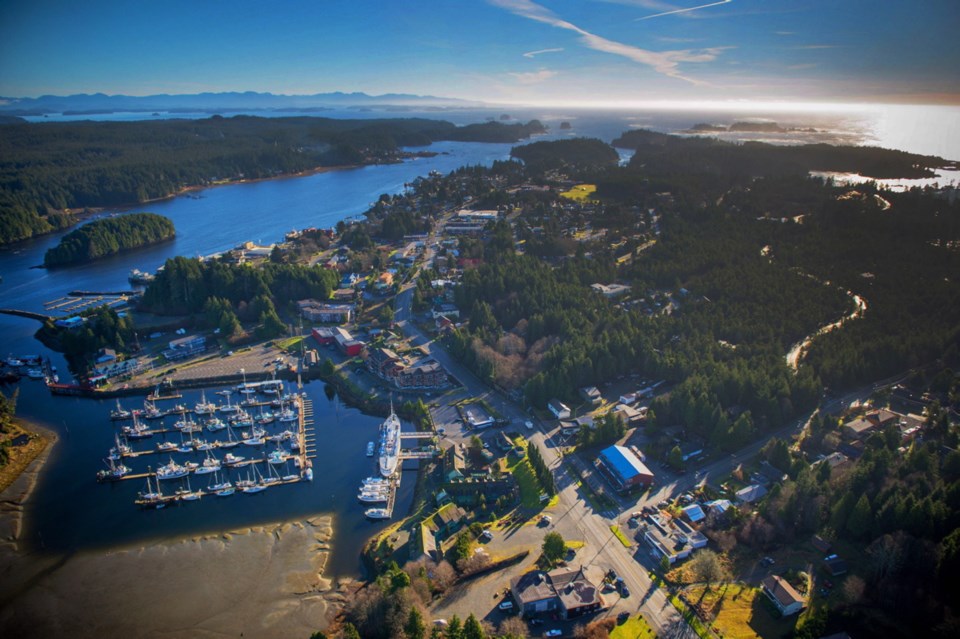The Canadian owner of a Bellingham-based yacht charter operation says he’s not surprised his boats caused a stir as they passed through B.C. waters, but he said the vessels were following the rules and heading straight to Alaska.
The flotilla of NW Explorations’ boats that made its way to Alaska caught the eye of a number of Island residents; some reached out to media to complain while others offered a few thoughts while the crews refueled or checked in at Canada Border Services in Nanaimo.
“A gentleman came by in a tender and gave people a piece of his mind,” said Ross Tennant, noting his crew was left rattled by the experience. “I said to the crew that people were on eggshells right now.”
Tennant, who bought NW Explorations in 2018 and has since expanded to add a Sidney location, said the boats were not filled with tourists, did not dawdle for sight-seeing purposes and — other than fuel stops — headed directly to Alaska.
“It was a commercial transfer,” said Tennant, noting a big part of the company’s business is taking boats from Bellingham to Alaska and spending most of the summer in the north.
Tennant, who lives in Victoria, said a float plan for both trips was filed with the Canada Border Services Agency, which ensured the crews had proper protective gear and remained on docks during refueling stops in B.C.
“The trip to Alaska was one that we did as a commercial delivery through British Columbia to get the boats up to Alaska,” he said.
In a typical year, there would be charter clients aboard the vessels for those legs of the tour, but Tennant said that was not on the cards this year.
“They were doing pretty much a beeline for Alaska. We had originally hoped they could tour around, but when that looked like it would not be appropriate, we took charter guests off those legs,” he said. “It wasn’t appropriate to send people through B.C.”
Instead, the trip to Alaska and the return trip to Bellingham featured only NW Explorations staff on board the vessels to reposition them.
“It did raise a few eyebrows as the boats were transiting to Alaska and then coming back down because they are U.S.-flagged boats in Canadian waters and people were rightly concerned about that,” he said.
Tennant said some of the anger expressed to the crew during fuel stops was surprising, but he understands where it comes from given the lengths British Columbians have gone to in following the guidelines put out by provincial health officer Dr. Bonnie Henry. “So when they see other people coming in here, there is a heightened sensitivity — and maybe rightly so given they have worked so hard.”
Tennant said he’s hopeful boaters in the U.S. and Canada will soon be good neighbours again and that communities will once again open up.
“But until then, we are trying to be careful about what we do and try not to ruffle any feathers,” he said, noting they advise anyone chartering boats in the U.S. to stay in U.S. waters and in Canada to stick close to home as well.
According to the Canada Border Services Agency, boaters are prohibited from crossing the border for recreation or tourism.
“Boaters are still permitted to navigate across international waters if needed, but are not allowed to enter Canadian territorial or boundary waters for discretionary, leisure reasons,” said spokeswomen Rebecca Purdy in an email.
Purdy said boaters can navigate across Canadian waters for the purpose of transit when proceeding directly from one place outside Canada to another place outside Canada if needed, but are not allowed to dock or anchor in Canada for discretionary, non-essential reasons.
Travelling through Canada by boat for essential purposes — such as returning home — is permitted.
Purdy said regardless of the reason for the trip, boaters still have to report to the CBSA if crossing the border.
“Boaters who enter Canada without reporting to the CBSA, including for the purpose of refuelling, may face severe penalties, including monetary penalties, seizure of their vessels and or criminal charges,” she said.
The minimum fine for failing to report to the CBSA upon entry to Canada is $1,000.
Failure to comply with the current border entry restrictions is an offence under the Quarantine Act and could lead to up to six months in prison and or $750,000 in fines.
aduffy@timescolonist.com



